The great 1980s Dungeons & Dragons panic
Continue reading the main story In today's MagazineIn an era of potent concern over internet pornography, cyber-bullying, and drugs, it is hard to imagine a game being controversial. But 30 years ago Dungeons & Dragons was the subject of a full-on moral panic, writes Peter Ray Allison.
At the beginning of 1982's ET, a group of teenage boys are indulging in a roleplay game, featuring dice and spells, and sounding a lot like Dungeons & Dragons. They indulge in banter as they wait for a pizza delivery to arrive.
This innocuous depiction was a far cry from the less-neutral coverage that was to come.
Back in 1974, Dungeons and Dragons (D&D) was arguably the first true roleplaying game. Players took on the mantle of adventurers from a multitude of races and occupations. Each game had a Dungeon Master who would act as both a referee and storyteller. By 2004, it was estimated that the game had been played by over 20 million people.
Today, any veteran player from the game's early years would speak of its positive attributes. It was based almost entirely in the imagination. It was social. No screens were involved.
But in the 1980s the game came under an extraordinary sustained assault from fundamentalist religious groups who feared its power over young minds.
In 1979, 16-year-old child prodigy James Dallas Egbert III disappeared from his room at Michigan State University. A private investigator, William Dear, was hired by James's parents to find their son. Despite apparently knowing little about roleplaying games, Dear believed that D&D was the cause of Egbert's disappearance.
In truth, Egbert suffered from, among other things, depression and drug addiction, and had gone into hiding - in the utility tunnels under the university - during an episode of self-harm. The well-publicised episode - referred to as the Steam Tunnel Incident - prompted a number of works of fiction, including the novel Mazes and Monsters and 1982 Tom Hanks film of the same name.
Continue reading the main story Dungeons & Dragons
- Created by Gary Gygax and Dave Arneson, after being inspired by the wargame Chainmail
- Released by TSR Inc in 1974 and later acquired by Wizards of the Coast in 1997
- Games are run by Dungeon Master, who acts as both referee and storyteller
- Players create characters from diverse number of races and occupations
Egbert later died from a self-inflicted gunshot wound in 1980. Despite the evidence regarding his mental health problems, some activists believed Egbert's suicide was caused by D&D.
In 1982, high school student Irving Lee Pulling died after shooting himself in the chest. Despite an article in the Washington Post at the time commenting "how [Pulling] had trouble 'fitting in'", mother Patricia Pulling believed her son's suicide was caused by him playing D&D.
Again, it was clear that more complex psychological factors were at play. Victoria Rockecharlie, a classmate of Irving Pulling, commented that "he had a lot of problems anyway that weren't associated with the game".
At first, Patricia Pulling attempted to sue her son's high school principal, claiming the curse placed upon her son's character during a game run by the principal was real. She also sued TSR Inc, the publishers of D&D. Despite the court dismissing these cases, Pulling continued her campaign by forming Bothered About Dungeons and Dragons (BADD) in 1983.
Pulling described D&D as "a fantasy role-playing game which uses demonology, witchcraft, voodoo, murder, rape, blasphemy, suicide, assassination, insanity, sex perversion, homosexuality, prostitution, satanic type rituals, gambling, barbarism, cannibalism, sadism, desecration, demon summoning, necromantics, divination and other teachings".
Pulling and BADD launched an intensive media campaign through conservative Christian outlets as well as mainstream media, including an appearance on current affairs show 60 Minutes opposite D&D creator Gary Gygax.
Jeremy Irons in the film version of Dungeons & Dragons, 2000
In 1985, Jon Quigley, of the Lakeview Full Gospel Fellowship, spoke for many opponents when he claimed: "The game is an occult tool that opens up young people to influence or possession by demons."
These fears also found their way into the UK. Fantasy author KT Davies recalls "showing a vicar a gaming figure - he likened D&D to demon worship because there were 'gods' in the game".
Veteran roleplayer Andy Smith found himself in the unusual position of being both a roleplayer and a Christian. "While working for a Christian organisation I was told to remove my roleplaying books from the shared accommodation as they were offensive to some of the other workers and contained references to demon-worship."
Looking back now, it's possible to see the tendrils of a classic moral panic, and some elements of the slightly esoteric world of roleplaying did stir the imaginations of panicked outsiders.
Continue reading the main story How to play
- Each player takes on role of character; one player becomes Dungeon Master, serving as game's referee and storyteller
- Characters form party and set out on "adventure", guided by storyline set out by Dungeon Master
- Game is open-ended and can last over several sessions; a set of polyhedral dice (pictured) are used by players
"Since fantasy typically features activities like magic and witchcraft, D&D was perceived to be in direct opposition to biblical precepts and established thinking about witchcraft and magic," says Dr David Waldron, lecturer in history and anthropology at Federation University Australia and author of Roleplaying Games and the Christian Right: Community Formation in Response to a Moral Panic. "There was also a view that youth had an inability to distinguish between fantasy and reality."
While the wilder claims about the nature of D&D tended to emanate from evangelical groups, they prompted wider suspicion.
"The memes from this campaign proliferated and, being published largely uncritically in the initial stages, led to a wide-ranging list of bizarre claims," says Waldron. "For example, that when a character died you were also likely to commit suicide."
The claims being made about roleplaying games did not go unchallenged.
Author Michael Stackpole was a vocal dissenter, criticising Patricia Pulling and BADD. In 1990, Stackpole published The Pulling Report, in which he documented numerous errors made by BADD and accused Pulling of misrepresenting her credentials as an expert witness on games.
Studies by the American Association of Suicidology, the US Centers for Disease Control, and Health and Welfare Canada all found no causal link between D&D and suicide.
D&D continues to be debated, in the US at least. In 2010, the United States Court of Appeals for the Seventh Circuit upheld a ban on D&D by the Waupun Correctional Institution. Captain Muraski, the institution's gang specialist, testified that D&D can "foster an inmate's obsession with escaping from the real life, correctional environment, fostering hostility, violence and escape behaviour".
But public perception has changed. If people have any kind of negative view of roleplaying today, it is much more likely to be about the supposed geekish overtones, rather than fears for the sanity of the players. The students who played D&D in the 1980s are now grown up into respectable careers.
"The view of roleplaying games has changed over time," says Smith, "mostly because the predicted 'streets awash with the blood of innocents as a horde of demonically-possessed roleplayers laid waste to the country' simply never materialised."



 Her
Her 

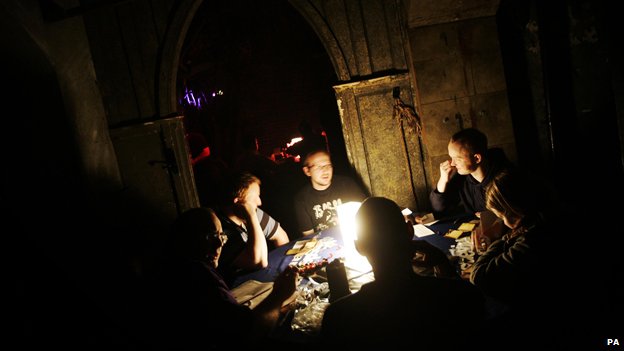
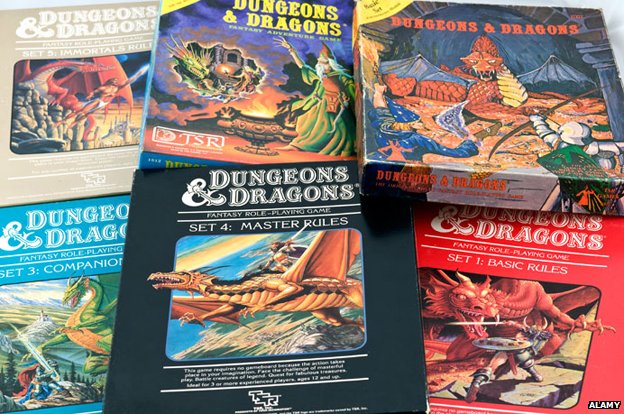
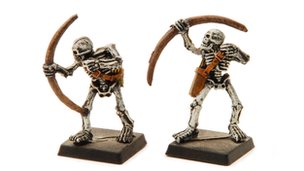
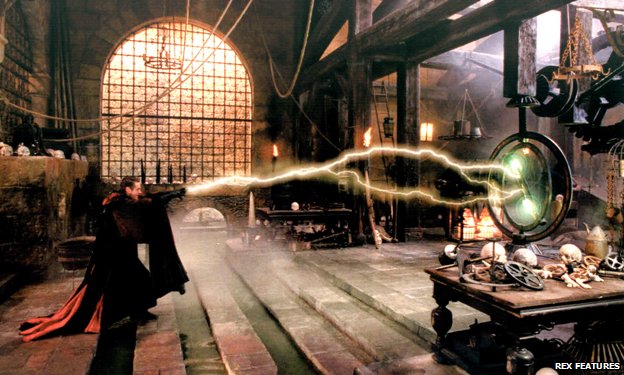
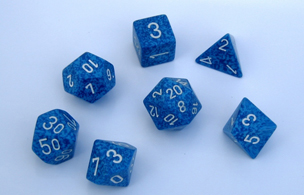
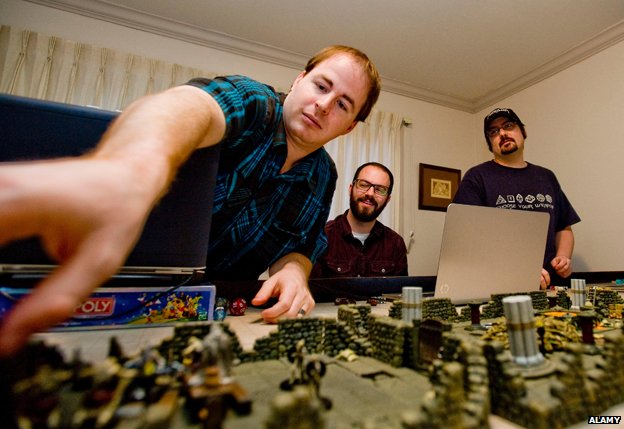


 she got and the more
she got and the more  I got.
I got.